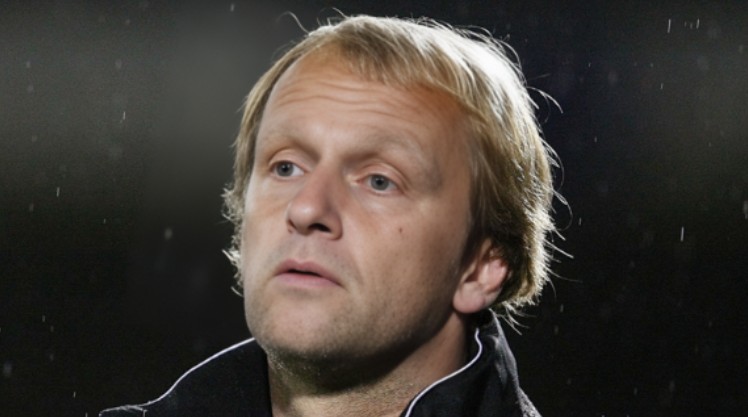Richard Sneekes: The Cult Hero Who Left a Lasting Mark on English Football

Richard Sneekes is a name that still resonates with football fans across England, especially those who followed West Bromwich Albion in the 1990s. With his flowing blonde hair, technical finesse, and knack for scoring crucial goals, Sneekes was far more than just a foreign import in English football—he became a beloved figure, an icon of the terraces, and a symbol of flair during a transformative period in the Football League. This article explores the life and legacy of the Dutch maestro, tracing his journey from the famed Ajax academy to cult hero status in the West Midlands and his seamless transition into coaching.
Early Life and Footballing Roots in the Netherlands
Richard Sneekes was born on 30 October 1968 in Amsterdam, Netherlands. Raised in a football-mad environment, it was perhaps inevitable that his path would lead to the pitch. He joined the famed Ajax youth academy at a young age—an institution known for producing world-class talents such as Johan Cruyff, Dennis Bergkamp, and Clarence Seedorf. The Ajax system, rooted in “Total Football,” shaped Sneekes into a technically gifted and tactically intelligent midfielder.
Despite the prestige of Ajax, Sneekes found first-team opportunities limited. He made just three appearances for the senior squad, prompting a move in search of regular football. His journey continued with spells at Volendam and Fortuna Sittard, where he began to develop a reputation for his intelligent playmaking and goal-scoring prowess from midfield.
A Brief Swiss Sojourn and the Road to England
In 1994, Sneekes made a short detour to Switzerland, joining FC Locarno. Although it was a brief stay, he managed an impressive return, scoring 13 goals in 26 appearances. His performances did not go unnoticed, particularly by scouts in England. That same year, Bolton Wanderers brought Sneekes to the English game for a reported fee of £200,000.
It was at Bolton that the English public first witnessed Sneekes’ flair. He played a key role in the club’s promotion campaign and was part of the squad that reached the 1995 League Cup Final. Although Bolton lost to Liverpool, Sneekes had made an impact, offering a glimpse of the creativity and composure he would later bring to West Bromwich Albion.
Richard Sneekes at West Bromwich Albion: A True Cult Hero
In 1996, Richard Sneekes made the move that would define his playing career: he joined West Bromwich Albion. Over the next five years, he would etch his name into Baggies folklore, making over 200 appearances and scoring 30 goals.
What made Sneekes special wasn’t just his technical ability—it was the way he connected with the fans. At a time when West Brom were striving for consistency and identity in the Championship (then the First Division), Sneekes became a beacon of quality. His long-range strikes, pinpoint passes, and ability to dictate the tempo endeared him to supporters. It wasn’t long before fans were turning up to The Hawthorns wearing blonde wigs in tribute to their Dutch talisman.
Sneekes had an eye for the spectacular, scoring goals that lifted the entire stadium. He was often deployed as a deep-lying playmaker, but his sense for timing runs into the box made him a consistent goal threat. Importantly, he brought a continental sophistication to an English game still steeped in physicality and long-ball tactics.
The Characteristics That Set Him Apart
What truly set Richard Sneekes apart during his time in England was his balance between flair and work ethic. Unlike some technically gifted imports who struggled with the physical demands of the English leagues, Sneekes adapted seamlessly. His fitness, vision, and mental sharpness allowed him to thrive amid the intensity.
Another hallmark of Sneekes’ game was his intelligence. Whether reading the play, finding space, or choosing the right pass, he often appeared two steps ahead. This awareness extended to his defensive duties—while not known as a tough tackler, he was efficient in interceptions and pressing.
Moreover, he demonstrated loyalty and humility. In an era before mega-contracts and transfer drama, Sneekes remained committed to his club, giving everything on the pitch and never seeking the limelight. It was this grounded nature, combined with his elegance in play, that made him beloved by fans across generations.
Life Beyond West Brom: A Nomadic Finish to His Playing Career
After leaving West Brom in 2001, Sneekes’ professional career began to wind down. He had short stints with Stockport County and Hull City, followed by a spell in Denmark with Herfølge BK. Eventually, he returned to England and featured briefly in non-league football, even playing alongside his son at Dudley Town.
These final years were less about personal glory and more about love for the game. He embraced the slower pace of lower-tier football with the same dedication he had shown at the professional level. It was clear that football was not just a job for Sneekes—it was his calling.
The Coaching Years: From Pitch to Dugout
Following his retirement, Richard Sneekes turned his attention to coaching. He began by earning his UEFA B licence and launching a football school to help nurture young talent. His passion for development and grassroots football reflected the values he had displayed as a player—focus, intelligence, and humility.
In 2010, Sneekes took up a youth coaching role at Tamworth, followed by a position at Hereford United as a first-team coach in 2011. Over the next decade, he continued to develop his managerial credentials with roles at several non-league clubs including Halesowen Town, Sutton Coldfield Town, and Chasetown.
Perhaps most notably, he managed Rushall Olympic in multiple spells, including most recently in 2024 and into early 2025 before transitioning into a technical advisory role. His work has often involved guiding clubs through challenging seasons, helping to stabilise squads, and mentoring young players.
Legacy: Why Richard Sneekes Still Matters
Though he may not have played for one of Europe’s elite clubs or earned caps for the senior Dutch national team, Richard Sneekes holds a special place in football culture. He is a reminder that influence in sport is not solely measured by trophies or headlines. Sometimes, it’s the player who brings joy to the terraces, who gives his all for the badge, and who plays with heart and flair that earns lasting admiration.
At West Brom, his name still draws smiles. For many fans, especially those who followed the club during the challenging years of the late 1990s, Sneekes represented a rare spark—proof that class and creativity had a place in the gritty world of the Football League.
His journey from Amsterdam to the English heartlands and back into coaching speaks to a life lived with purpose. Whether as a player dancing past defenders or as a mentor guiding young talent, Sneekes has always led with intelligence and grace.
Conclusion: The Unforgettable Richard Sneekes
In the grand tapestry of football history, Richard Sneekes may not be a headline act—but he is undeniably a treasured thread. His story serves as a testament to the enduring power of passion, skill, and connection with fans. At a time when football often feels dominated by money and spectacle, the legacy of players like Sneekes stands as a powerful counterbalance.
Richard Sneekes will always be remembered not just for the goals or the passes, but for the way he made people feel—hopeful, inspired, and proud to support their club. That is the mark of a true footballing icon.



